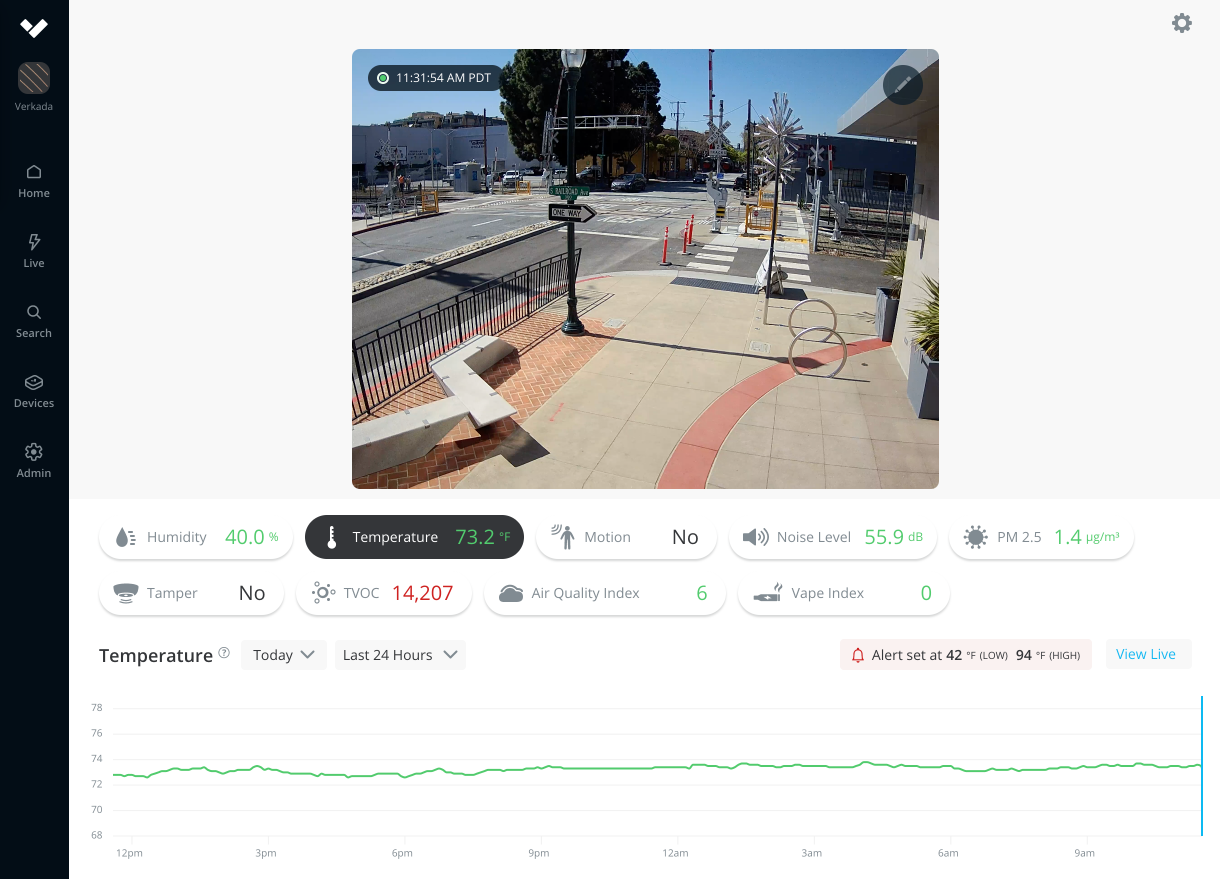
Temperature monitoring, especially in the context of vaccine storage, is more important now than ever. COVID-19 vaccines must be maintained in specific conditions and if they surpass a certain threshold, vital treatments end up being disposed of.
This fear has played out in the real world. Adventist Health Ukiah Valley Medical Centre in California confronted this scenario when one of its refrigerators lost power. Fortunately, officials quickly discovered the issue—a blown compressor—and were able to rapidly distribute more than 800 doses before they would have expired 12 hours later.
For other companies, the inventory in question may not have consequences as severe and the timeline to react might be more forgiving. However, situations like this highlight just how important it can be to monitor your environment and know exactly when conditions change.
In this blog, we’ll discuss the growing importance of sensor technology across all industries and how expansion across the workforce has resulted in the massive $2.19B market projection by 2023 .
Monitoring Environments with Smart Sensor Technology
Any company that handles perishable food understands the critical importance of real-time monitoring. When food is stored in improper conditions, it can lead to bacterial growth, spoilage, and can become deadly if served to a customer. This is why authorities, including the FDA , have established strict regulations and industry firms to adhere to proven best practices that keep people safe.
But technology—in the form of smart sensors—can help ensure that fewer mistakes are made and that workers are able to easily and instantly recognize when problems occur.
With temperature monitoring that offers both real-time and archived data, teams can quickly look at trending data and identify how long areas peak outside of the required range. In the case of those responsible for food quality and preparation, they can quickly pinpoint how long perishables may have been exposed to improper temperatures or conditions, taking the guesswork out of inventory management.
With a proactive sensor solution , teams are able to leverage technology to alert them of unusual changes across their environments—and in the event that unusual changes occur, teams can quickly intervene to fix the issue before it’s too late.
Measuring Humidity, Air Quality and Total Volatile Organic Compounds (TVOCs)
Other environmental factors, especially humidity, are just as important to monitor. The exact temperature may not be a major concern for long-term storage of dry food storage like grains. However, higher humidity levels can cause mold and bacteria to grow.
“Temperature and relative humidity are also critical to our operations. I have to maintain 55% plus or minus 1% or less relative humidity. If we hit 58%, we start running into problems with our dry ingredients. They start clumping and plugging machines up; it gets ugly pretty quickly. With Verkada’s sensors, I’m able to detect irregularities before it becomes a problem.” Frank McKinney, COO, Carolina Ingredients
Humidity poses similarly damaging threats to a number of other key industries— IDF closets where servers are at risk, libraries where books and archival materials could be damaged or any building where dangerous mold could grow and cause irreparable damage to tenant health.
Other industries may look to monitor air quality and total volatile organic compounds (TVOCs). In some cases, tracking these levels might be mandated by OSHA or other regulatory agencies.
In those instances, comprehensive data can also be very useful when dealing with compliance audits. Whether there is a formal investigation or not, having a data log that shows exactly what the conditions were like at any given moment is invaluable information.
Having real-time visibility into environments further protects investments made in the workplace and supports the productivity of the workforce.
Mitigating Reputational Risk and Long-Term Fallout
Beyond compliance, safety, and protecting inventory, monitoring your environment can even stave off potentially disastrous reputational risk.
We have all heard of restaurants or food producers involved in an outbreak of foodborne illness. Whether it is through careless supply chain management, improper food handling, or perhaps even bad luck, this can lead to expensive recalls, regulatory fines, and even legal liability.
But from a financial perspective, the reputational fallout can be even worse. Brands may still be dealing with major losses even years down the line, losing long-term reputations they’ve worked hard to build.
Deploying the Full Power of Environmental Sensors
While monitoring through sensors alone is very useful, this becomes even more powerful in combination with other solutions.

A look at Command, Verkada's cloud-based management platform.
Paired with video surveillance and access control systems, Verkada’s SV11 Environmental Sensor provides teams with the visibility they need to understand what and why an alert was triggered. Perhaps a room that is normally climate-controlled rose in temperature during the summer because a door was left open. The footage and access log will show you when and how it occurred—not leave you with a mystery to solve.
The same goes for annual audits or situational investigations. Because Verkada’s cloud-based security system is accessible from any browser or device, data aggregation, reporting, and sharing key information is effortless.
It will always be easier to prepare a proper incident response when you know the exact conditions and are able to present a full data readout to investigators. And hybrid cloud surveillance and sensors offer an additional layer of confidence because they will record video and maintain data even in the event of network outages.
Thriving as a modern business requires more information than ever. The more data points you’re able to aggregate, the more informed you are in making better business decisions.
To learn more about how Verkada’s SV11 can help your team collect, store, and analyze site health and safety, attend our upcoming sensor webinar.



